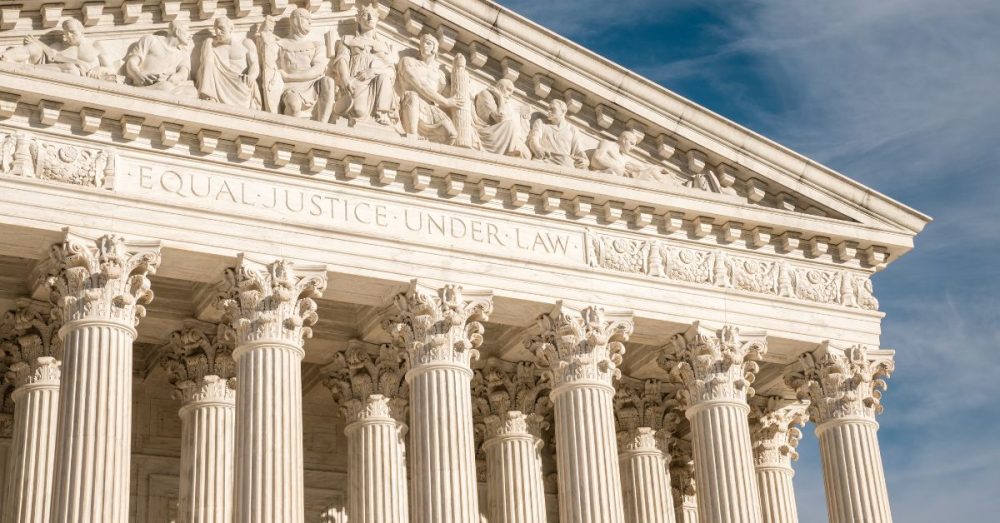The Supreme Court ruled on Monday that former presidents are immune from criminal prosecution for actions taken within their constitutional authority, effectively delaying a prosecution of former President Donald Trump.
The nation’s highest court ruled in a 6-3 vote that prosecutions of former presidents must determine whether the individual’s actions are within the official duties of the executive office.
“Under our constitutional structure of separated powers, the nature of Presidential power entitles a former President to absolute immunity from criminal prosecution for actions within his conclusive and preclusive constitutional authority,” the court determined. “And he is entitled to at least presumptive immunity from prosecution for all his official acts. There is no immunity for unofficial acts.”
The decision backs an argument from Trump’s legal team against special counsel Jack Smith’s election interference case. Trump faces four felony counts for allegedly attempting to overturn the 2020 election.
The former president praised the decision in a post on Truth Social.
“BIG WIN FOR OUR CONSTITUTION AND DEMOCRACY. PROUD TO BE AN AMERICAN!” Trump wrote.
Now, a lower court will determine whether Trump’s alleged crimes were committed in an official or unofficial capacity as president.
Chief Justice John Roberts wrote the majority opinion. Justices Clarence Thomas, Neil Gorsuch, and Brett Kavanaugh joined him in full, and Justice Amy Coney Barrett joined in part.
“Few things would threaten our constitutional order more than criminally prosecuting a former President for his official acts,” Thomas wrote. “Fortunately, the Constitution does not permit us to chart such a dangerous course.”
Justices Sonia Sotomayor, Elena Kagan, and Ketanji Brown Jackson dissented.
“Today’s decision to grant former Presidents criminal immunity reshapes the institution of the Presidency,” Sotomayor wrote. “It makes a mockery of the principle, foundational to our Constitution and system of Government, that no man is above the law.”


